Exclusion of exclusivity
The Ukrainian crisis sharply actualized the role of Russia in world politics. In this perilous game, President Putin demonstrates that he has a conceptual understanding of how to create a new world order to replace the tyranny of American exclusivity.
This text should not be expected to be fundamental. These are just notes concerning some aspects of world politics - military-strategic, geopolitical and ideological. There are no final statements. These notes are only intended to prompt one to think about the extreme complexity of the ongoing processes. Against the background of this complexity, many statements and comments in the media seem extremely lightweight. The gap between the part of the Russian intelligentsia, in which Russia almost rolls into the abyss, and the absolute majority of the people, it seems to me, is intuitively significant, looks significant. historical the importance of the moment experienced by the country and the world.
Strategy
We first analyze the military-strategic side of the Ukrainian crisis from the point of view of Russia. Strictly speaking, the term “strategy” should be used without the adjective “military”, since strategy is the art of warfare, the art of a military leader. However, over the past decades, this word has become used in relation to many other types of activities, so it is necessary to make a clarification.
It seems an obvious thesis that any ruler must first of all take care of the security of his country. Our “progressive public” 1 likes to repeat: no one is going to attack us, we are surrounded by peace-loving states, especially in Europe, and our foreign policy problems are caused by our own behavior, which is interpreted as aggressive. Indeed, at the moment no one is preparing his troops to cross our borders tomorrow and launch a ground operation in the spirit of the Second World War. But does this mean that Russia has no potential adversaries in a strategic sense, that is, how could military action develop if the war began? Here the answer is obvious. Russia is surrounded by an uncountable number of US military bases. In Europe, there has been a gradual expansion of NATO to the east, in recent years - already in the Baltic States, Bulgaria and Romania; In a split from Serbia, Kosovo, the Americans immediately built one of the largest bases in the world. What about nuclear weapons USA, its combat readiness and objectives? It is undoubtedly of the highest degree of readiness, and its main objectives are objects in the territory of Russia. (As for Russia, by the way, the corresponding facilities in the United States.) The missile defense systems are methodically approaching our borders. And although today missile defense systems cannot hit any significant part of our nuclear missiles, in the future it is quite possible, theoretically there are no obstacles to this. Finally, it is no secret that in the operational planning of NATO, Russia is still viewed as an adversary.
We will touch upon only one aspect of the strategy in connection with Ukraine and the Crimea - the geographical one. A quarter of a century ago, our front line of defense in the west passed through East Germany, Czechoslovakia, Yugoslavia (with reservations related to the special status of this country), Bulgaria (see map). The distance from this line to the Soviet border was 500 – 800 km. The weakening of the Soviet Union led to a loss of influence in Eastern Europe, the collapse of the Warsaw Pact, the creeping spread of NATO and, accordingly, a serious loss of depth of theater of operations. Now we have an intermittent line of defense: the Kaliningrad region - the western border of Belarus (our reliable ally) - Transdniestria (although quite conditional, but still there remain Russian troops) - Sevastopol. The transition of Ukraine under American patronage would almost certainly sooner or later mean the appearance of NATO troops in this country and, of course, the elimination of the Russian military base in Sevastopol. At the same time, Transnistria would be in the rear of NATO and would be practically inaccessible. On this occasion, Vladimir Putin said: "We ... could not allow our access to the Black Sea to be significantly restricted, to the Crimean land, to Sevastopol ... to send NATO troops and radically change the balance of forces in the Black Sea region." The loss of Sevastopol would lead to a new radical reduction in the depth of the theater of operations. From the northern border of Ukraine to Moscow in a straight line less than 500 km. Also less than 500 km, for example, from the eastern border of Ukraine to a large division of mine-based missiles in the Saratov region. The flight time of medium-range missiles at such distances is only a few minutes. That means the impossibility of taking retaliatory measures.
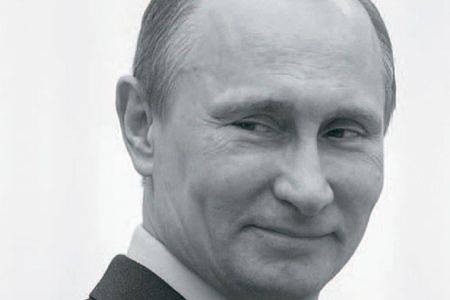
Photo: RIA News
In this context, the annexation of Crimea to Russia should be viewed as the most important strategic victory of 1. Regardless of how events in Ukraine will continue to develop, how aggressively our Western "partners" will behave, and even, no matter how hard it is to write, regardless of the outcome of the uprising in Donbass, a key strategic decision has already been made: Crimea remains an important element of the Russian defense systems. And although the final seizure of Ukraine under American control is still possible - and this means the deployment of military systems there - the preservation of Sevastopol, and especially of the Crimea, makes it possible to maintain a strategic balance.
The famous American expert on strategy and geopolitics Edward Luttvak (three of his books have been translated into Russian) recently summed up the Crimean operation: “Crimea should be considered from this point of view. Not as a fact of simply taking away the territory, but as part of the strategy ... ”Here it is appropriate to quote another interesting quote from the same Luttwak interview:“ ... only two cultures in the world have real strategic talent: the British and the Russians. That is why Russia is the largest country on the planet, the Russians not only always in their history were successful strategically, but were also able to not lose this talent and reproduce it with each generation. ”
In general, in modern analytical journalism unfairly little attention is paid to strategic aspects. A case in point is the events in Yugoslavia in the 90s of the last century. In numerous materials analyzing the civil war in this country and its disintegration, almost no one remembered that Yugoslavia was considered to be the strategic planners of the key country in the European theater of operations. The disintegration of Yugoslavia, of course, was militarily beneficial to the West. Instead of a strong independent country with decent military forces, six weak states emerged in this geographical area. When Serbia was finally finished off, the Balkans stopped being a problem for the West, now it’s like a clean field. The symbol of strategic success was the already mentioned American military base in Kosovo.
Do I need to send troops to the east of Ukraine?
After the referendums in the Donetsk and Luhansk regions, in which citizens clearly turned away from the new Kiev authorities, and the rapid deployment of the tragic events in eastern Ukraine, a dashing part of the Russian public demanded that success be developed - to send troops to the neighboring country and take the whole of New Russia. And this, we recall, the entire south-east of Ukraine, down to Moldova. Against the background of the then sluggish reaction of the West, such an energetic development of the “offensive” seemed natural to many. However, from a strategy point of view, such actions seem risky.
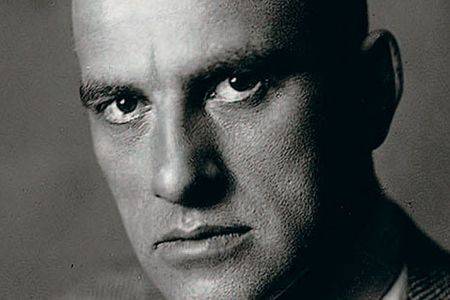
Karl von Clausewitz, a military writer who still remains unsurpassed, has one of his favorite concepts - the so-called culminating point of the offensive. We explain briefly what it is. Any successful offensive is possible only with the superiority of material and moral forces. At the same time, the attacker spends his strength, and the defender, if he is not completely defeated and he has the will, accumulates, attracts additional resources, concentrates. Finally, there comes a time when the reaction force of the defender can exceed the strength of the preceding attacks. This is the punchline. On it, the offensive should be stopped. But how to define it, how not to succumb to emotions when the enemy retreats? Clausewitz’s answer, unfortunately, is not very practical: “Often everything hangs on a silk thread of imagination ... It all comes down to catching the climax of the offensive with the help of heightened intuition.” Let us cite one more quotation: “... the majority of commanders are more willing to stop long before the limit, than to approach it closely; and, on the contrary, brilliant courage and outstanding enterprise often give flight and, thus, make an irreparable mistake. Only the one who accomplishes the great with small means, really aptly hits the set goal. ”
I suppose that the annexation of the Crimea was the culmination point at which it was necessary to slow down. Entering our troops in the Donbass could escalate into a war. And war is too unpredictable to easily get involved in. Even now we are witnessing a certain consolidation of the West, which was not the case after the annexation of the Crimea. The decisive factor here was the crash of a Malaysian passenger plane, but who could have foreseen this tragedy (provocation)? The presence of Russian troops in the east of Ukraine would inevitably raise the question of NATO’s military assistance to Kiev from NATO, and possibly the introduction of NATO troops to Ukraine. And from here it is not far and to direct fighting. With regard to sanctions in such a turn of events, the West could have incurred substantial losses for itself, which means that Russia would also have suffered real losses. You can fantasize further and wind up the scenarios one is worse than the other - the degree of uncertainty is such that it is easy to do. However, it is clear that the risk of a strong response would increase many times.
This does not mean that it is necessary to surrender the Donbass. It is necessary to continue the struggle by other means - political, economic, informational, humanitarian. Moreover, the situation may change in such a way that the military resource will become relevant again, it cannot be written off, the “partners” should remember it.
Geopolitical alignment
Recently, more and more often in the American and European media, as, incidentally, in part of the Russian, the thesis is expressed that President Putin is turning away from the West, rejecting European values, even ready to reduce the scale of economic cooperation with Europe, to isolate itself from it. The Russian vector allegedly turns towards China to the detriment of Europe. Such an interpretation of Russian foreign policy seems somewhat stilted.
If you remain unbiased, you can understand that Vladimir Putin never for all fifteen years of ruling the country did not give reason for reproaches in some anti-European sentiments. Putin’s famous speech, delivered in German in the Bundestag in 2001, has become a vivid symbol of Russia's openness to cooperation with Europe in all areas. In the Putin years, trade with Europe grew from 80 billion to 417 billion last year.
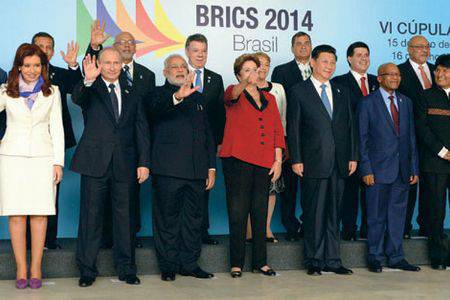
Photo: ITAR-TASS
Putin vigorously walked towards Europe, the West. Cooperation with NATO began. At some point there was even talk of Russia's possible accession to this organization. In the energy sphere, the main area of our cooperation, Putin proposed Europe to make large-scale investments; as it happened, the share of foreign ownership of energy assets in Russia reached 25%. Putin proposed an asset swap, and something was even done in that direction. In fact, we could already talk about the creation of a joint Russian-European energy complex in the future.
But when the Russian side began to talk about technologies in exchange for access to Russian natural resources, they immediately felt they did not want to share technologies with us, even on obviously economically advantageous conditions.
A similar discussion revolved around the problem of deploying elements of the American missile defense system in Europe. None of our exhortations, appeals to stop this process, proposals for joint work in this area, for example, the use of the Russian radar station in Azerbaijan, did not find a response.
A somewhat different interpretation of this scheme: not Russia is turning in the direction of China, but the West itself, through its actions, involuntarily pushes Russia to the east. Sanctions restricting Russian-European economic relations will unwittingly force Russia to expand relations with China. Trade with China is approaching 100 billion dollars a year, and although it is four times more with Europe, the dynamics are clearly in favor of China. It is appropriate to recall the recently concluded huge Russian-Chinese transaction for the construction of the Power of Siberia gas transmission system, investment in this construction is estimated at 60 – 70 billion dollars. Today, Russian-Chinese relations are as even as ever. How to know if the time for military cooperation will not come in them, and then reorientation to the east will become inevitable. Something like this is the logic of the reasoning about the new Chinese vector of Moscow’s policy, whether it be with a positive sign or with a negative sign.
China, whose economic power is growing so rapidly that its first position on the list of world economies is a matter of a short time, will almost certainly increase its foreign policy activity. The problem is that the development of a powerful new power, as it has always been in history, is accompanied by an increase in its aggressiveness. The first signs are observed now. For example, Beijing has actually proclaimed its sovereignty over the entire expanse of the South China Sea and is already demonstrating it in a conflict with the Philippines over the sandbar of Scarborough. Relations with Vietnam are not easy, they argue over the Paracel Islands. In May of this year, the dispute turned into Chinese pogroms in Vietnam: four Chinese died, several thousand people were urgently evacuated.
China's military spending last year, according to various estimates, from 145 to 190 billion dollars (for comparison: Japan spends 50 billion dollars a year on defense).
It is believed that sooner or later China will face the United States in a battle for leadership. In this context, Western analysts like to ask themselves: who will Russia be then? Her position, according to many, is key. China will not be able to become a “superpower” without Russia: economic power cannot be converted into political power. And political power is more complicated. Russia is relatively economically weaker politically stronger than China. If Russia is with China, then its power is fundamentally increasing; if Russia is with the West, then China’s dominance is impossible. If this logic is correct, then it would seem that the West should try to attract Russia to its side on the basis of pure pragmatics. However, we see the exact opposite: pressure on Russia is increasing. It can be assumed that another decision was made in Washington: Russia should be weakened to such an extent that if it falls into Chinese arms, then China’s qualitative strengthening will not happen4. Instead of the battle for Russia planned by analysts, the battle against Russia begins.
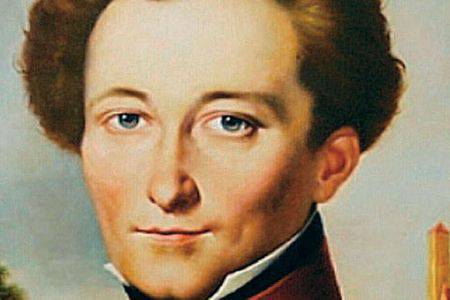
New world system. Moral grounds
So, the Chinese factor is an important argument for building Washington’s anti-Russian policy. It is tied to the pragmatic interests of the leading participants in world processes - the struggle for markets, resources, finances, for political and military influence in their areas. However, in addition to the interests that are invariably present in world politics, there is a factor of much deeper action. These are the moral foundations on which players acting on the world stage rely. Or, if you do not like the use of the term “morality” as a carrier of positive connotation, you can say about the worldview, about those or other pictures of the world that define a particular course of action. International relations, diplomacy always had moral bases. The hypothesis is that the old, but still relevant moral foundations can no longer ensure the stability of the world system, that the old picture of the world no longer meets the new challenges, that it is impossible to rebuild the world system based on the vision of the last century. Another, more daring hypothesis is that it is Russia that can offer a new concept of the world system, new principles of interaction between states. Our country has always had a slightly different, and in Soviet times and significantly different from the Western picture of the world. Perhaps this is the underlying reason for the West’s reluctance to engage in broad cooperation with Russia. The risk to the West is that the Russian understanding of how to arrange the world order may turn out to be attractive too for many, for the majority of mankind. And in this case, the West will lose its moral leadership.
Let's make a short historical excursion into the diplomacy of the last centuries.
In European diplomacy in the XVIII – XIX centuries, the concept of the balance of forces dominated. It reflected the ideas of the leading thinkers of the Enlightenment: rationalism, faith, often scientifically grounded, that various systems, from natural to social, can find a balance, despite conflicts, contradictions, and even the struggle of the elements that make up the system. For example, in the Wealth of Nations, Adam Smith argued that the selfish economic interests of individuals lead to a common good. And a little later, Charles Darwin in The Origin of Species described the process of their evolution in the course of natural selection. In political theory, ideas were popular that fighting with each other various parties or factions pursuing selfish interests, too, as in Smith's economy, leads to harmony and common good. In Russia, the writer Nikolai Chernyshevsky is recalled, who in a somewhat comical form presented the theory of rational egoism in the book “What to do?”.
In the spirit of these ideas in Europe in the XVIII century a system of equilibrium of forces developed. She, of course, did not stop the war, but at least allowed to avoid those slaughterhouses that were observed in Europe before, stretched for decades and brought chaos to whole countries. The balance of power system, interrupted by the Great French Revolution and the Napoleonic Wars and restored at the Congress of Vienna in 1815, existed until 1914. This system, it would seem so rational and stable, was buried by the world war with its unprecedented cruelty.
And then America came on the scene.

Dangerous messianism
US foreign policy has a simple and clear moral basis - the exclusivity of the American nation. Unaware of the question to the Russian reader, this thesis may seem to be some sort of juggling, or propaganda, or at least simplifying the matter. I assure you, no! The American nation’s own exclusivity has not been doubted for a hundred and fifty years. Moreover, doubts are an unforgivable political sin.
Since the century before last, Americans have believed that they have built the most perfect society on Earth, a society of freedom and opportunity, where everyone can find their own way. The democratic state control system is the best in human history. America is a model, and its values must triumph throughout the world. Here the question arises: how to achieve the triumph of American values, the American model of the state and society? Should we only hope for the strength of our own example, remain in the role of a “beacon” for all of humanity, or should foreign policy actively promote the spread of American institutions?
Before World War I, the United States preferred not to interfere in international affairs far beyond the American continent. The country adhered to the covenants of the founding fathers, and these covenants were rather isolationist. Although in its zone, America was not particularly shy. Only in the first years of the 20th century did she intervene in the affairs (sometimes occupying) of such countries as Haiti, Panama, Cuba, the Dominican Republic. The turning point was the First World War, and President Woodrow Wilson became the creator of the new US foreign policy.
Wilson made an intellectual, political almost incredible somersault. Starting from the idea of the exclusivity of the American nation, as if not rejecting the need to ignore European squabbles and wars, he radically changed the US foreign policy: from local it made it truly global. Wilson's logic was as follows (I am setting forth according to Henry Kissinger’s book Diplomacy). The goals facing America are set forth directly by Providence (it is difficult to invent a moral basis for greater power). The security of America is inseparable from the security of the rest of humanity. From this it followed that henceforth America’s duty was to resist aggression anywhere. The exceptional nature of the country requires that you approve freedom by your own example and at the same time spread it. Providential moral foundations of America do not allow us to limit ourselves in fulfilling our mission abroad; this country is knowingly right. A global crusade on the imposition of American values should be organized. Moreover, the forces of the United States will atrophy if America does not extend freedom to the whole world.
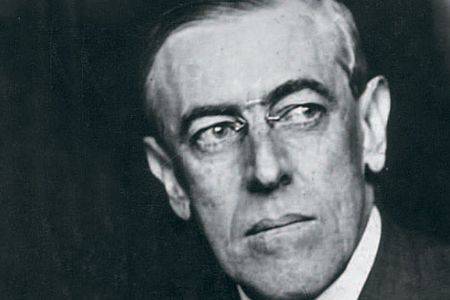
Photo: ITAR-TASS
To quote Wilson: “We created this nation to make people free, and we ... are not limited to America, and now we will make all people free. And if we do not do this, then the glory of America will evaporate and its power will evaporate. ” Woodrow Wilson achieved World War II entry from Congress, effectively turning an economically powerful but politically provincial power into a world leader.
This intellectual concept, which combines the uniqueness of America as a carrier of freedom and the ability to intervene in the affairs of any country in the world, if deemed necessary in Washington, has been a moral foundation of US foreign policy for almost a century. That is why last year’s article by Vladimir Putin in the New York Times caused a hysterical reaction in America. To quote Putin: “I consider it very dangerous to lay the idea of their exclusivity in people's heads, whatever the reason. There are states big and small, rich and poor, with long-standing democratic traditions and which are only looking for their way to democracy. And they carry out, of course, different policies. We are different, but when we ask the Lord to bless us, we must not forget that God created us equal. ” Putin "dared" to criticize the most intimate American value - the exclusivity of this nation. He made it clear that he does not share such a "messianic" approach to the structure of the world system of states, that there may be other value bases and he can present them.
Even if we accept the values of Wilsonianism or at least treat them with understanding (after all, America is a great country55, the richest in the world, receiving tens of millions of migrants, giving the world scientists, universities, technology, our ally in World War II, etc. etc.,) should critically evaluate the current practice of applying the concept of Wilson. And will not a critical analysis show that almost nothing remained of the centenary-old messianic ideals, that the light of the “beacon of freedom” does not attract humanity, but rather scares and rejects? What was once an idealistic policy, and for many it really was such, degenerates into the most cynical Realpolitik? Harsh interference in the internal affairs of other countries, leading to the destruction of state structures, to huge casualties - Iraq, Syria, Libya1 ... Unceremonious treatment of close allies: wiretapping of heads of state, pressure on French banks, refusal to give Germany its gold, etc. Use radical Islamic forces to achieve not idealistic, but absolutely pragmatic, selfish goals. Unprecedented control over the media - we now clearly see this in the example of the anti-Russian campaign, bloated in connection with the Ukrainian crisis.
The short epoch of US hegemony is ending, and along with hegemony, Wilsonian diplomacy will also go away.
The economic and political structure of the world is changing rapidly. “Never before has a new world order been created on the basis of such diverse representations, on such a global scale,” Kissinger wrote. Now there is no doubt that Russia is destined to play an important role in the creation of this new order11.
Isolation is a myth
Many media outlets say that the behavior of Russia in the Ukrainian crisis isolated the country, turned it into a pariah, and the entire civilized world turned away from us in disgust. Is it so?
I recall the results of voting at the UN General Assembly on the anti-Russian resolution immediately after the annexation of the Crimea. Then the Americans managed to push this resolution, one hundred countries voted in favor, there were only a few against - only eleven. However, the countries that did not support the resolution turned out to be 93 - someone from the representatives forgot to press the button, someone stayed at the buffet, and someone did not come at all for discussion. In these 93 countries, two thirds of the world's population live, representatives of these two thirds of humanity did not speak out against Russia, did not support the United States.
Another episode is the recent BRICS summit in Brazil. And if the meetings of the leaders of these countries are already familiar, attention should be paid to what happened after the summit. The leaders of all the countries of South and Latin America 1, the countries most of which are considered to be almost vassals of the United States, came to Brazil. They wanted to be involved in a new international organization, in whose prospects they believe, in an organization whose moral leader is Vladimir Putin.
Even Europe now, in the acute phase of the Ukrainian crisis, does not demonstrate unity in terms of sanctions against Russia. I believe that the thesis of "isolating Russia from the whole world" is nothing more than a propaganda trick.
Why are they drawn to Russia? Two years ago I had a chance to talk with several prominent European scientists, they participated in the work of the Yaroslavl political forum. I asked if it was possible to create a world-class discussion platform in Russia. The answer surprised me: they all said that only in Russia it is possible to create a platform alternative to the western ones, such as Davos; only in Russia representatives of any country will go without hesitation; Russia is the best country to develop a different, non-Western agenda.
To the new agenda
What signals does President Putin give regarding the new agenda, principles and approaches to modifying the world system? Here I give my interpretation based on the public texts of Vladimir Putin.
Firstly, it is definitely visible, which Putin is opposed to, what actions he considers counterproductive, harmful.
Against imposing a political regime of "democracy". Such an imposition, it seems, has never led to success. Countries have different prehistory, culture, each lives in its own historical rhythm, rough construction always carries risks. Non-systemic “introduction” of rights such as freedom of speech usually leads to the loss of other fundamental rights, such as the right to life or the right to work. Here on our side are countries such as China, led by the Communist Party, or Iran with a regime of Islamic persuasion.
Against interference in internal affairs without obvious need. The examples of recent years show that intervention often destroys the existing structures of a country's life and leads to disasters.
Against the new imperialism, destroying the sovereignty of states, as a result of which the weakened countries cannot defend their interests in the global world, the order of functioning of which is set by the leading players. As in the case of the “old” imperialism, their development turns out to be slow and dependent, the “profit” ultimately settles among the strong. Here allies may be poor countries, as well as many leftist intellectuals, including those from Western countries.
Against social racism. Try to find out how many people died during the Iraq war. You will easily find data on the dead and wounded in the armies of the United States and its allies. As for the Iraqis, there are only estimates that differ by almost ten times: from 150 thousand dead to more than a million. Nobody considered dead Iraqis and is not going to count. As the West treated the "aborigines" in the era of colonialism, it is much the same with many nations even now, although it is lacquered by this attitude of tolerance. And these people are not aborigines1, Iraq is Interfluve; Iran, which has been toughly pressed until recently, is Persia with a history of many thousands of years. China, which, however, is already afraid of learning, is several thousand years old.
Secondly, Putin is a supporter of building complex networks of interaction between the 1 states and multilateral diplomacy. Such networks, on the one hand, make it possible to take into account different interests, to search for complex compromises, and, on the other, to reduce the risks of confrontation. American messianism, which does not allow anyone to be recognized as equal, is inappropriate here. So, by the way, the European Union was created. This construction can be criticized from different angles, but one cannot argue with the fact that the risks of war in the EU are as low as never in history.
Thirdly, it seems that Putin believes that a structure should be built that would allow to search for a balance of interests, and not a balance of forces in the spirit of the 19th century. This construction should be more fair to most states.
Fourth, we need to create new international institutions like the BRICS Bank, which, working on new principles, would replace the old institutions created by the West to manage the world economy by and large in their favor.
Summarize. The era of domination of the concept of American exclusivity is coming to an end. 1 And although, as Alexander Zinoviev wrote, “theorists, politicians and mass media of the West are absolutely sure that their system is the best,” new strong players appeared, with a different vision, and ignored them. Under the conditions of a global one world is impossible. That mission in world politics, which Vladimir Putin took upon himself, indicates that Russia will have to participate in the creation of a new world architecture in the first roles.
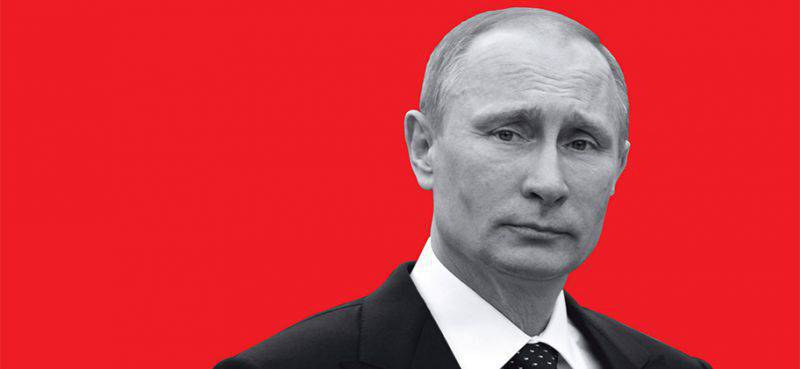
Information